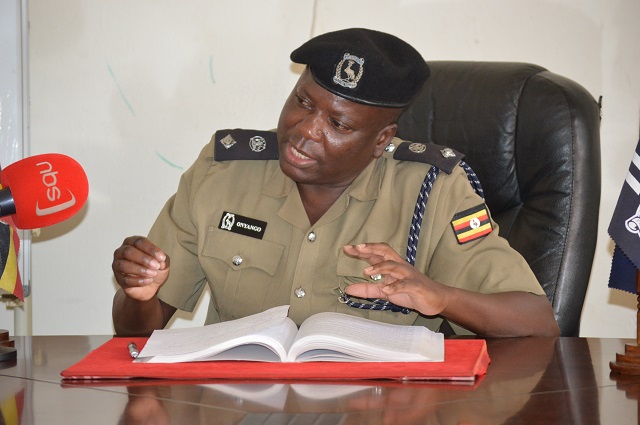
Kampala, Uganda | THE INDEPENDENT | Last week, Ismail Kiggundu called several district and division police commanders-DPCs, officers in charge and heads of Criminal Investigations Department ordering them to release certain suspects in their custody.
The Kampala Metropolitan Police spokesperson, Patrick Onyango, says e called the officers using police lines pretending to be a commissioner attached to the office of the Inspector General of Police-IGP, Martin Okoth Ochola.
According to Onyango, the officers heed to the instructions because the impersonator had known police numbers and pseudo names. The revelation of Kiggundu’s tricks left many wondering whether police operates on orders from above to release suspects.
Questions rose on why a senior officer would order a junior to release a suspect and what procedures are followed. URN spoke to Onyango about the circumstances, under which a senior police officer would order an officer below his status to release a suspect.
Police says it is not a common practice for senior officers to direct juniors to set suspects free but if someone appeals to a higher office about detained person at a particular police station, then an order can be issued to that effect.
“If relatives complain to a higher officer that their person has overstayed in the cells without trial and the lower officer doesn’t give reasons on why the suspect hasn’t been taken to court or released on bond, a communication can be sent to the lower officer to release the suspect,” Onyango said.
He also says a senior officer can also order the release of a suspect on health grounds.
Onyango says previously police would send a wireless transmission to officers but nowadays an order can be made through a phone call to lower officers. Sometimes, the complainants can be given written communication by a senior officer to present to a junior to release the suspects.
Nevertheless, before a higher officer orders his junior to release suspects, he must communicate to the handling officer to understand particulars of the offence committed. In addition, he ensures that particulars of the suspect are well recorded so that it can be easier for follow up.
Police say important details to jot down before a suspect is released on bond or unconditionally include name and contact of a person who has picked him, home or area of residence.
*****
URN
 The Independent Uganda: You get the Truth we Pay the Price
The Independent Uganda: You get the Truth we Pay the Price



